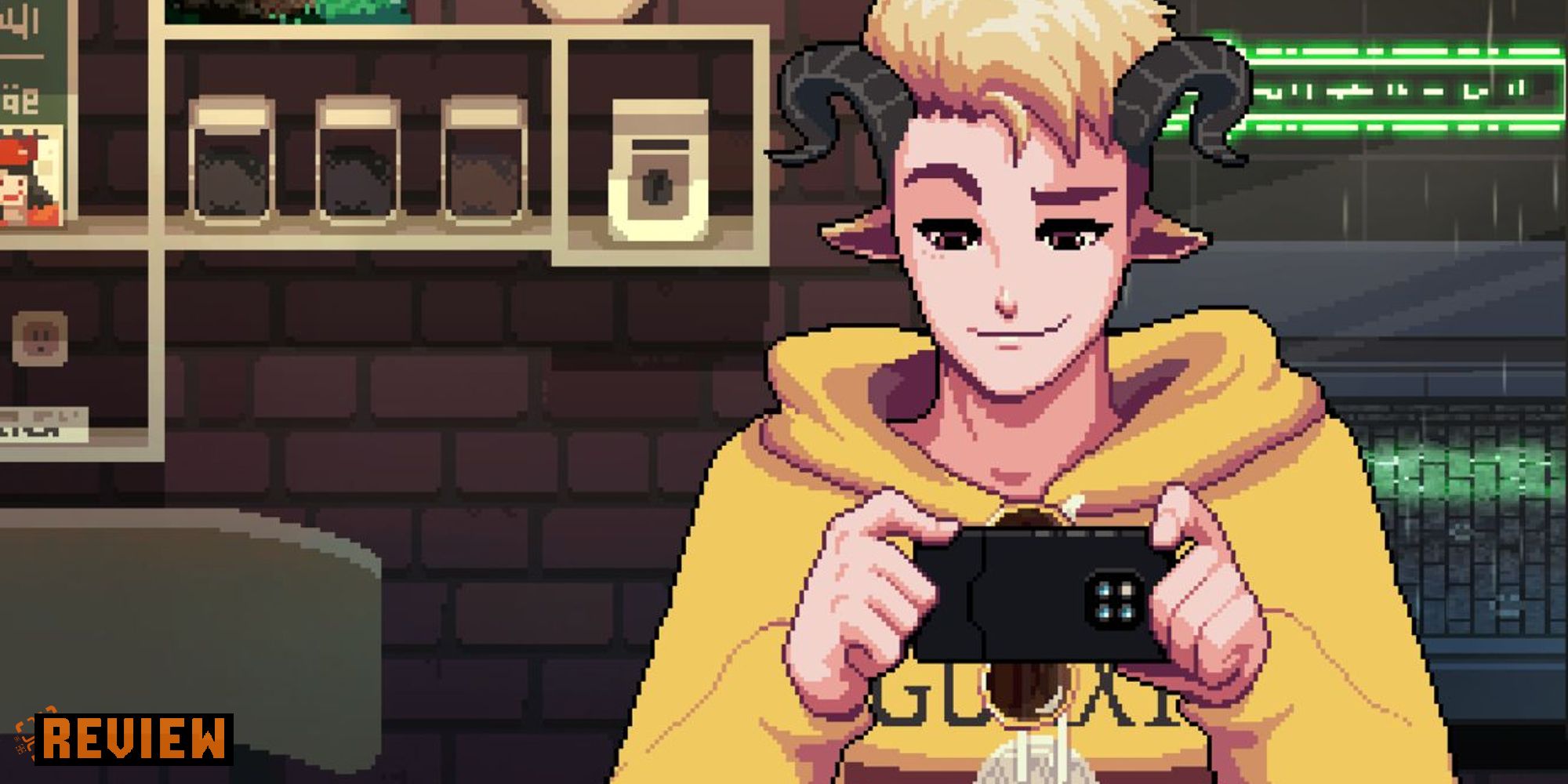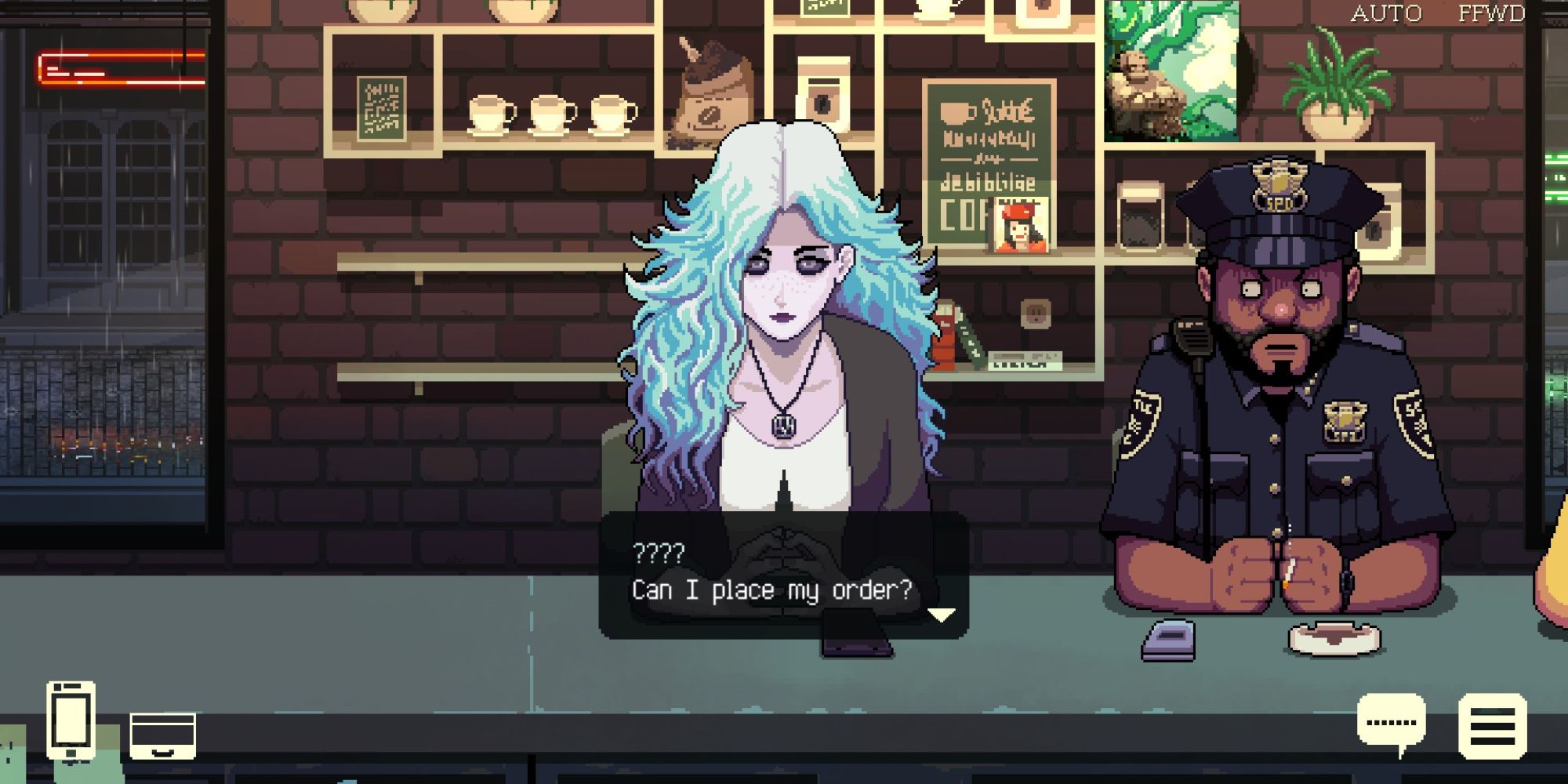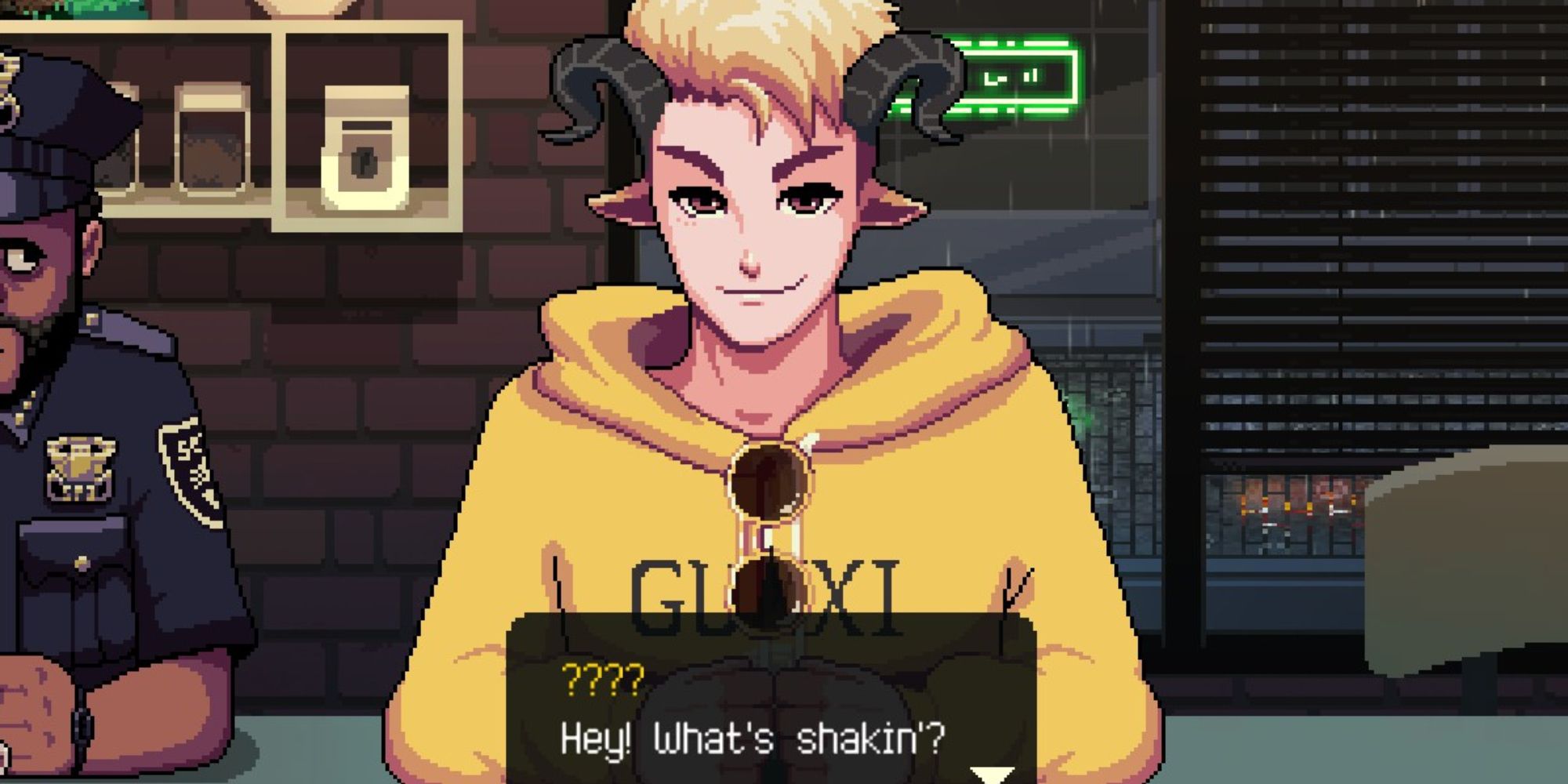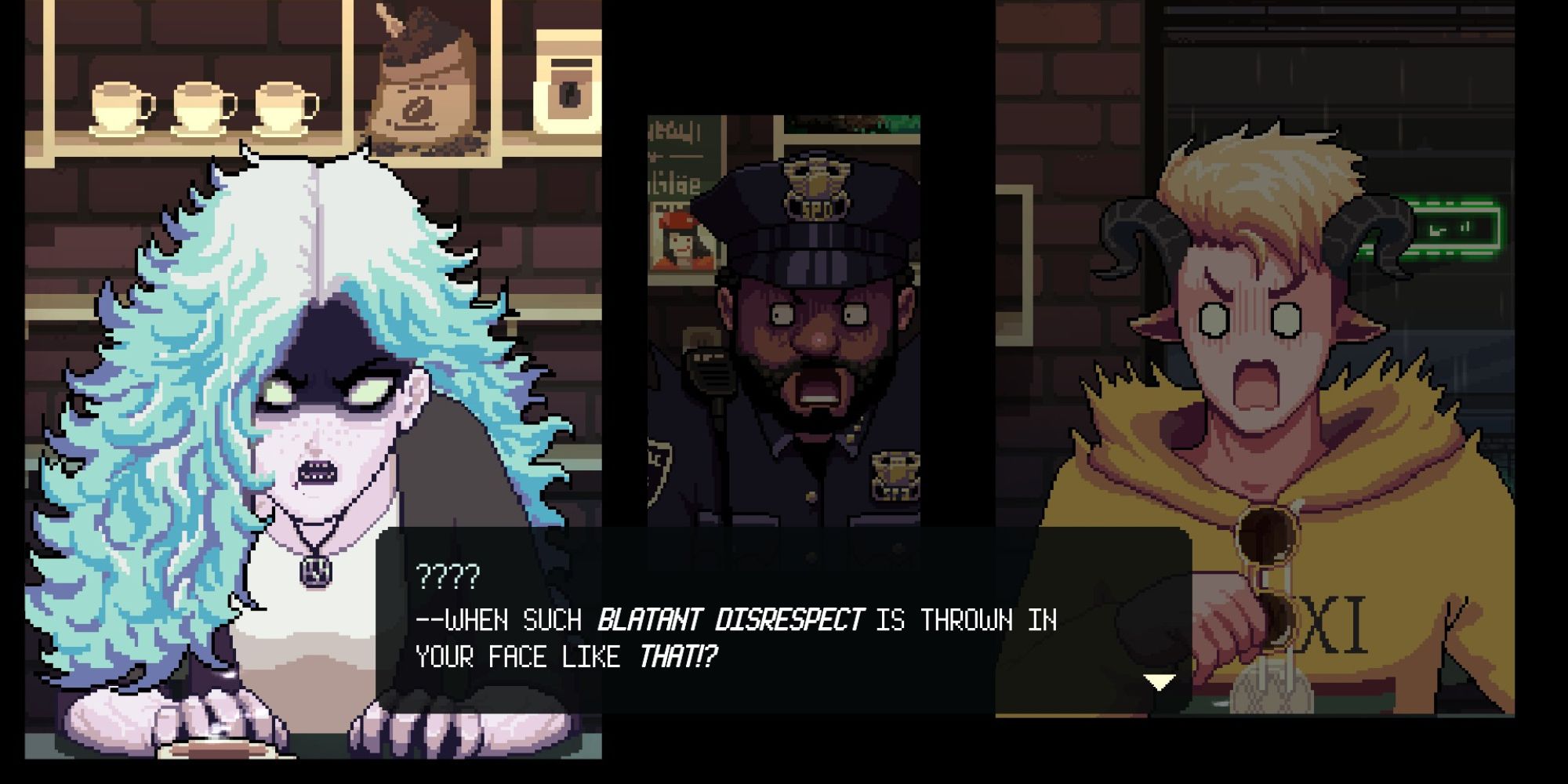The first Coffee Talk launched to overwhelmingly positive reception from players, with many praising its charming fantasy characters, beautiful pixel-shaded art and soothing music. With a January 2020 launch date, it was an unexpectedly perfect game to pass a few hours while isolating in the early days of the pandemic. I remember how as the first inklings of loneliness started kicking in, I drew my curtains and got lost in the world of Coffee Talk. I brewed coffees and teas for my customers, learning about their lives in the process. I talked through their problems with them. It felt like an escape.
Coffee Talk Episode 2: Hibiscus & Butterfly works off the first game’s not-so-secret secret ending. I don’t want to spoil it for you so I won’t say much more, but there are hints sprinkled throughout the newest game about the barista’s true nature. It’s more apparent than in the first episode, and had me raising my eyebrows as I tried to piece the mystery together.
Re-entering the world of Coffee Talk feels like getting your regular drink from your favourite cafe. Many familiar faces will enter and it’s like seeing old friends – they sit at the bar, you make them a drink, and you chat about their lives and the world. Mechanically, the game isn’t very different from the first, and that’s a good thing, since the series balances its different aspects fairly well. Gameplay still mostly resolves around the things that made the game so popular in the first place: listening to people’s stories, giving advice, and getting a little gossipy.
Your job is to make the drinks your customers request from you. You have a phone with four apps: Tomodachill, which lets you see your friendship levels with each customer and read what is more or less their Twitter feed, Brewpad, which lists all your discovered recipes, The Evening Whispers, which lets you read short stories from the newspaper, and a music app, where you can change the soundtrack. You start with no recipes or friendship levels because you ‘serviced your phone’. You have two new teas, the eponymous hibiscus and butterfly pea. There is a new inventory system, where customers may give you or leave behind items that you store in a lost and found drawer. You can give these to other customers to help move their stories along.
Speaking of customers, Coffee Talk Episode 2 introduces new characters that are surprisingly endearing. Lucas is an influencer, who also happens to be a satyr – he enters during a storm, exclaiming “Oh Gods!” which is very funny to me. He bonds with Riona, a banshee who wants to be a soprano and perform in operas, but finds herself discriminated against because most sopranos are sirens. I wasn’t sold on them at first, especially Lucas, but they grew on me because they both had some solid character development as the game went on, with one realising it’s okay to ask for help and the other realising their way isn’t always the best way.
Just like in the first instalment, these characters are vehicles for the game to explore themes of societal change. Coffee Talk’s themes are broad and a little unfocused, but it does a surprisingly good job of delving into them with long monologues, without sounding preachy. Characters here are different types of creatures from mythology, and some from fantasy. You’ll find orcs and vampires alongside nekomimis and mermaids, and a couple of humans. Different races are treated differently, and have different stereotypes about them. This is an obvious metaphor for racism, but Coffee Talk handles the discussions delicately.
It also talks about being connected and driven apart by technology, wealth and privilege, corporations acting predatorily, fast fashion, and knowing yourself. There’s even some trans allegory in there, a pleasant surprise. Much of the game revolves around these themes, and the writers weave beautiful narratives about the people who experience them and how those experiences have shaped the way they approach the world. At more than one point, I felt my eyes well up. I loved watching the cast be shaped by conversations with each other, and I was happy to just listen and make drinks for them as they hashed out their problems.
The game isn’t perfect. The gameplay can be mildly frustrating, especially when characters kept asking for drinks from the first game that I didn’t remember how to make. It’s an easy fix – I just went to TheGamer’s guides and checked – but it was frustrating to have to keep taking my real phone out to search for the recipe. The first instalment came out three years ago now, and there’s no way I could’ve remembered a single recipe apart from espresso. It was unclear at what point I was supposed to give items to characters, but I shelved away those annoyances for a second playthrough where I could get everything right and get the best endings possible. There was also a single game-breaking bug that happened before I’d even started playing, but it was easily fixed by just starting a new save and I haven’t been able to replicate it.
These are, in the grand scheme of things, small kinks in what was otherwise a soothing, soul-searching experience. It’s rare for games this introspective to be made with such delicacy, and Hibiscus & Butterfly is a gem that’s shaped with care for detail and a great amount of love. Love is everywhere in this game, from the carefully written dialogue to the drinks referring to the developer’s own Southeast Asian region. The game’s message, really, is about love for yourself and for others, and in a world where everything feels like an opportunity for more division, it feels incredibly healing to play a game so focused on empathy and connection with the people around us.
Score: 4/5. A game code for PC was provided.
Coffee Talk: Episode 2





